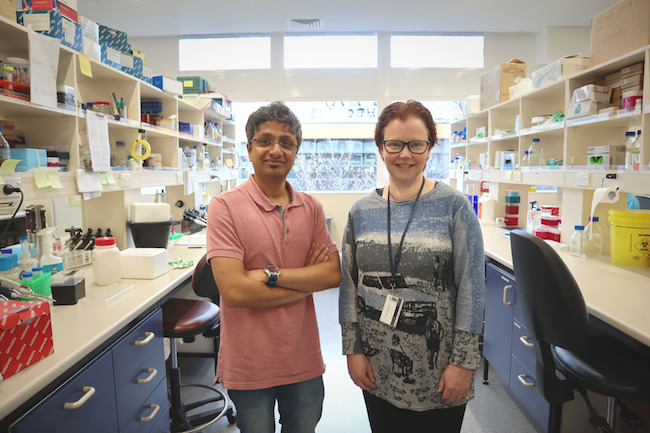
Thanks to the Neurological Foundation of New Zealand, two new research projects investigating neurodegenerative diseases will go ahead this year in the Neurodegenerative and Lysosomal disease laboratory, here at the Otago Department of Biochemistry.
Associate Professor Stephanie Hughes leads the lab, which aims to understand the basis of diseases where neurons are progressively damaged, and find ways to treat these conditions.
The Foundation is supporting her new initiative searching for 'superhero genes', genes that cancel out the effects of neurodegenerative disease-causing mutations.
The disease she will be focusing on is CLN5 Batten's disease, which causes childhood-onset blindness, epilepsy, cognitive and motor decline.
Figuring out which genes stop the CLN5 Batten's disease mutation from causing disease, and how these genes work, will help Assoc Prof Hughes and her lab to find new ways of treating this disease and others like it.
Postdoctoral Fellow Dr Indranil Basak is leading a project that aims to chart new neuronal survival pathways in Parkinson's disease.
He wants to find out why a special kind of neuron, a 'cortical neuron', is protected from a mutation that causes other neurons to die. This research also aims to uncover pathways to new treatments for incurable brain diseases like Parkinson's disease.
Both projects were awarded around $200,000 to be spent over a two-year period.
Pictured: Dr Indranil Basak (left) and Associate Professor Stephanie Hughes standing in the Neurodegenerative and Lysosomal disease laboratory in the Biochemistry Department.